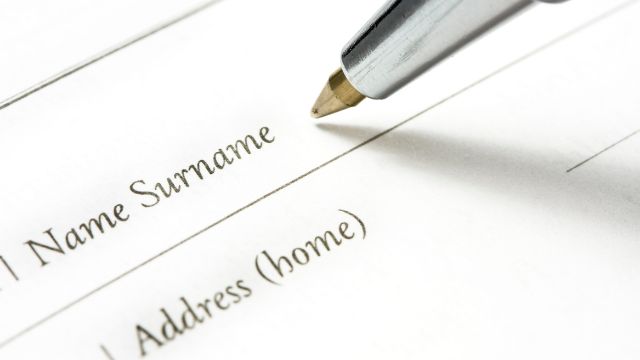Marriage happens to be a very important point of life. It is the point of great changes in the lives of the bride and the groom both. Along with their union they decide to share everything together. It is there that they come up with the question of keeping the surnames. In a number of cultures the society suggests that the bride should take the husband’s surname after marriage. But, it did not stay consistent over the time. Nowadays a great many women are deciding to keep their surname same after their marriage. But is there any disadvantage to this practice? Or are there only positive sides to it? Let us discover Pros and cons of changing your SURNAME after marriage:

Advantages of not changing surname
1. Professional Continuity:
Keeping one’s surname after marriage helps professional continuity. In a world when career paths matter and professional identities vary, retaining the same surname lets successes and recognitions flow smoothly. A consistent surname is crucial in professional environments where individuals establish themselves. Professionals build networks, achievements, and surnames. Professional narratives are preserved by keeping surnames after marriage. Personal branding is crucial in journalism, education, and business, where surnames are consistent. Coworkers, clients, and collaborators associate surnames with work, expertise, and success. Relationships help people promote themselves and build professional identities.
2. Identity Autonomy:
Keeping one’s surname shows that marriage doesn’t involve personal sacrifice. This choice encourages and corresponds with current equality in relationships by allowing both parties to be themselves in marriage. Keeping one’s surname displays lifetime commitment to identification. This choice emphasizes autonomy and the concept that marriage is a partnership where each couple keeps their own history and ideas. Surnames are vital for identification under shifting social norms. It examines if marriage erased women’s identities. After marriage, surname adoption reflects a more equal concept of relationship. This autonomy empowers, proving marriage does not define humanity. Both partners have unique aims and contributions. This awareness of individuality underlines that marriage is a partnership where one person’s personality is not outweighed by the other and encourages mutual respect and equality.
3. Familial Linkage:
Family pride and dignity drive surname retention. When passing on a historical or cultural surname, this selection is crucial. Keeping a surname shows family pride and honors heritage, traditions, and shared experiences. Maintaining a generation-old family identity is stressed in this choice. Preserving a historical or cultural surname is intentional. Surnames may reveal ancestry, culture, or history. This surname helps maintain a legacy beyond the individual. A historical or cultural surname is often kept to preserve its rich heritage. It becomes a goal to tell future generations about their predecessors’ ideals, habits, and achievements.
4. Personal Branding:
Personal branding matters in the digital age. People spend effort developing online presences, professional networks, and personal brands. Creating a cohesive personal identity, networking, and professional ties requires surname uniformity in this setting. Online presence becomes brand as individuals travel the digital globe. Social media, professional networking, and personal websites may showcase skills and expertise. Here, surname stability provides a unified and instantly recognized internet presence. Surname consistency across digital media builds a personal brand. Consistency fosters trust since colleagues, potential collaborators, and others can identify and interact with the person online. Visualizing the personal brand helps consumers remember and connect.
5. Reduced Administrative Hassle:
After marriage, changing surnames demands identification, financial, and professional changes. Surname changes need administrative measures. Update passports, driver’s licenses, and social security cards via government agencies. Bank accounts, credit cards, and insurance policies must be properly updated with the new surname. Professional certification and license holders must update credentials for correctness and compliance. Surnames simplify administrative tasks and save hassle. Avoid difficult and time-consuming official document revisions by preserving the same surname. It saves time and avoids name-changing errors.
Disadvantages of not changing surname
1. Traditional Expectations:
Keeping a surname after marriage goes against tradition. So it is a huge drawback. People often quietly assume their husband’s surname because to social, familial, and cultural norms. Cultural and social norms have long required a woman’s surname change upon marriage, which goes against tradition. The patriarchal ritual symbolizes a woman’s merging with her husband’s family and shared identity in marriage. Thus, people who preserve their maiden names may struggle to change societal norms. Generational family traditions may pressure surname changes. Many families show unity by adopting the husband’s surname. Traditional naming families may argue or misinterpret the decision to maintain one’s surname.
2. Perceived Unity:
Changing surnames has traditionally signified marriage. Those who reject this old custom may distrust their marriage. Social standards may challenge surname stability advocates. Culture and society actively encourage adopting the husband’s surname to symbolize marriage. Thus, preserving one’s surname undermines this narrative and may challenge marital oneness. Perceptions that surname change is associated with public marriage may cause commitment concerns. Those that deviate may be questioned about their marriage. Surname stability proponents must defend their actions in light of societal standards.
4. Family Harmony:
Keeping one’s pre-marital surname may generate family strife if traditional family members or in-laws object. Name discrepancies might create family discord. Family and cultural standards may generate post-marriage surname disputes. Keeping one’s maiden name may contravene naming norms for traditional families. Keeping one’s pre-marital surname may cause family difficulties due to tradition. In-laws who appreciate tradition may also generate difficulties.
5. Parental Confusion:
When children are born, surname stability might create confusion. Not sharing a surname may create parental identity problems in social and educational situations, necessitating extra explanations. Adding children to a solid surname family may cause internal and external challenges. Without a shared surname, parents may need to explain their relationship to friends, teachers, and other parents. Standardised school and institution names cause misunderstanding.
Surnames are firmly ingrained in society and frequently represent family connections and affiliations. Those who don’t change their surname after marriage may start talks about personal values, views, and marital dynamics in social groups. Keeping one’s pre-marital surname undermines the family surname symbolic story. This choice might spark societal interest and debates about its motives. Maintaining their maiden name may require explaining it in social groups where conventional naming is the norm.
Conclusion:
Obviously the decision of retaining the surname happens to be an extremely personal choice. As per the culture and tradition as well as personal concerns, one can reach a decision as whether to keep the surname or not. Embracing a new surname or keeping the old one, all these become secondary when it comes to having a happy and prosperous married life.
Santosh Kumar, the author behind IndiasStuffs.com, is passionate about sharing valuable insights on a variety of topics, including lifestyle, technology, and Indian culture.
Page Contents

